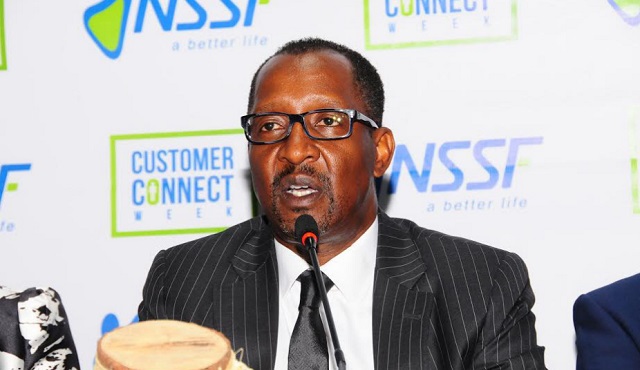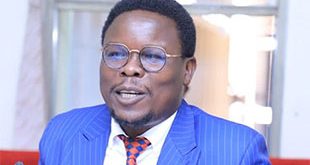
Kampala, Uganda | THE INDEPENDENT | The Trade Union Movement is concerned that the appointment of the new National Social Security Fund top management is taking long.
The Chairman General of the National Organization of Trade Unions,-NOTU, Usher Wilson Owere, says that with the contract of the Managing Director, Richard Byarugaba ending next month, it is expected that by now, a replacement should be ready.
However, he says there is no indication that the government is in the process of conducting the appointment process.
The recent amendments in the NSSF Act transferred the mandate to appoint the Managing Director and the deputy from the Ministry of Finance, Planning and Economic Development, to the Ministry of Gender and Social Development with the advice of the Board of Directors.
Phone calls to Minister Betty Amongi went unanswered, but an official from the ministry said that for now, there is no process going on at the ministry regarding either the appointment of new leaders or renewing the current contracts.
According to the officials, the board had already written to the minister recommending the extension of the contract of Byarugaba, who has been at the helm of the fund for 12 years.
The Minister of Finance Matia Kasaija as well as Owere, and some members of the board have hailed Byarugaba for ‘turning the fund around’, including reducing the number of scandals involving loss of money, the digitization of the Fund’s operations and the turnaround time for different services.
Owere also says that he has personally tried to talk to the people at the Ministry about the contracts but has got neither explanation of the delay, nor information about any ongoing process.
He rejected the comparison with the Bank of Uganda which has gone for eight months with neither Acting nor substantive Governor since the death of Emmanuel Tumusiime Mutebile at the beginning of the year.
Owere said BoU belongs to the government, unlike the NSSF which is owned by the workers and is therefore vulnerable to abuse by unscrupulous people in government unless it is protected by the laws.
If the contracts expire before new appointments are made, it would not be the first time NSSF operated without a substantive Managing Director.
In January 2014, Geraldine Ssali, who was Deputy MD was appointed Acting MD following the expiry of Richard Byarugaba’s first three-year contract.
In October of the same year, she relinquished the brief tenure when Byarugaba was reappointed and resumed her duty as MD.
However, in 2017, the Board advised the minister, then of finance as the appointing authority, not to renew her contract, citing underperformance.
This was largely aimed at curbing the management conflicts over the previous term between the MD and the Deputy that had culminated in the Board sending her on forced leave.
As her contract ended, the Minister named Patrick Ayota deputy, and Ssali interpreted her forced leave as the termination of her contract without a hearing. She successfully petitioned the court for compensation.
Since Ayota’s appointment, the achievements, including the quiet at the NSSF have been attributed to the close cooperation between the two, and this, it is said, is the reason the government will not rush into changing management or separating the two.
Earlier this year, Kasaija explained that the appointment of the NSSF boss is not as easy as any other appointment because of the nature of the Fund, the stakeholders, and the laws governing it.
“You need, not just a qualified and competent MD, but also one who is agreeable to the Board, the Government, and the workers, and so it cannot be rushed,” he said.
*****
URN
 The Independent Uganda: You get the Truth we Pay the Price
The Independent Uganda: You get the Truth we Pay the Price



